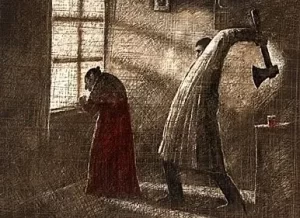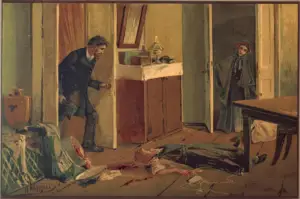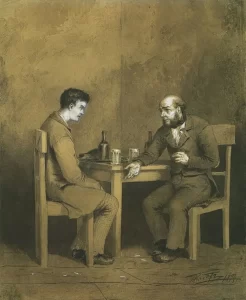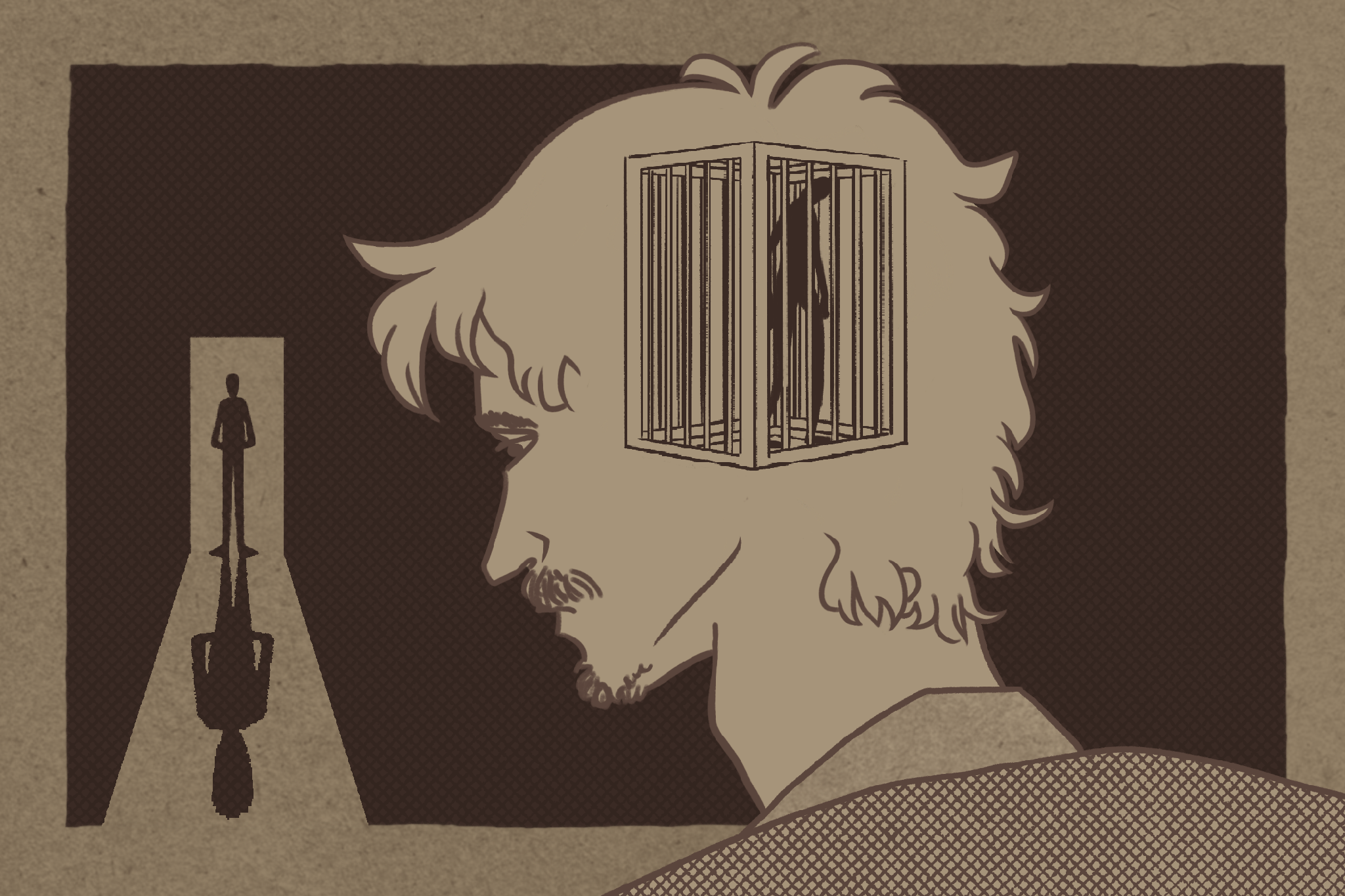Fyodor Dostoevsky’s novel “Crime and Punishment,” published in 1866, has long since been a classic piece of literature. It is studied every year in schools across the world. The plot follows the main character, Rodion Raskolnikov, before, during, and after a murder that he commits. His guilt and subsequent confession are thoroughly detailed through his thoughts, providing an interesting view into the mind of a criminal. This novel has themes such as moral predicaments and economic disparities.
Crime and Punishment Synopsis
The novel begins with Raskolnikov thinking to himself a lot about a “thing” that he feels immense guilt for even thinking about doing. However, he soon carries out that “thing:” an act of murder. He plans this murder because of his belief that there are two groups of people: the ordinary and the extraordinary. He believes himself to be extraordinary, meaning he doesn’t have to follow the same rules that ordinary people have to follow. He considers himself “a Napolean,” a person who is above the rest.

Thus, he murders a pawnbroker, Alyona Ivanovna, and her sister, Lizaveta. Alyona was a woman who many disliked. Raskolnikov told himself many times that because she was a bad person, she deserved to be murdered. However, this does not stop his growing guilt. On the other hand, Lizaveta was not a bad person. She was a mild-mannered woman who happened to be in the wrong place at the wrong time, being an accidental witness to her sister’s murder.
After the murders, Raskolnikov spends the rest of the novel drowning in his guilt. He hallucinates, has horrible dreams, is physically ill for a long time, and even almost confesses multiple times. One instance of this is when he is talking to Zamyotov, the police inspector, and almost tells him that he is the murderer, but then plays it off as a joke.
Raskolnikov’s first confession is to Sonya Marmeladov, his love interest. She immediately tells him that he needs to confess to the police. Raskolnikov tries to justify his actions by telling Sonya that Alyona is a “louse.” However, his guilt eventually takes over his every thought. And he confesses to the police. The end of the novel shows Raskolnikov’s trial, where people recount stories of Raskolnikov being a good person and that the murder was just a lapse in judgment due to his being mentally ill, which ends up lessening his sentence.
Themes In Crime and Punishment
The first theme that is presented in the novel “Crime and Punishment” is the moral predicaments that are displayed. The most clear predicament is the one that Raskolnikov faces: whether or not he should confess to his crime. He is torn between confessing or not confessing. On the one hand, he believed for a long time that Alyona deserved to be murdered and that he had the right to be the one to murder her because he is an “extraordinary” person. On the other hand, he has other influences, like his conscience, which is constantly berating him with guilt, and Sonya who is doing the same, telling him that what he did was bad and that he should confess so that he can be properly punished.

Lizaveta Finding Raskolnikov After He Killed Alyona
Another moral predicament that is shown is that of the character Marmeladov, the father of Sonya, who is an alcoholic. He is fully aware that his drinking habits are negatively affecting both him and the family, to the point that his daughter is forced to become a prostitute to make back the money that he spends on drinking. He is stuck between his love for his family and his love for drinking. In the end, he chooses his addiction.
The second theme that is shown in “Crime and Punishment” is mental health. Throughout the novel, Raskolnikov displays many different symptoms that suggest mental illnesses. Before the murder, he is described as being in a sort of haze, not being able to control his own actions. After the murder, he experiences depression and paranoia. Throughout history, mental illnesses have had many stereotypes and bad depictions, but Dostoevsky description provides a good account of these mental illnesses.
Connections to Today’s World
In today’s world, the theme of moral predicaments as presented in the novel “Crime and Punishment” can be seen because they are often seen in day-to-day life. The representations of these moral predicaments in books like “Crime and Punishment” can serve as a moral lesson.

For example, the characters Raskolnikov and Marmeladov are two sides of the same coin. They both have something that they can’t give up that negatively affects their life and the people around them, and they both have a moral dilemma due to that thing that they can’t give up. For Marmeladov, he can’t give up drinking, and his dilemma is to choose between his family or drinking. Raskolnikov, can’t give up the idea that he is an extraordinary human being, and his dilemma is deciding whether or not he should confess to his crime. Marmeladov chose the morally worse choice and ended up continuing his bad life until his death. Raskolnikov made the morally good choice in the end and was given a chance to lead a better life.
Nowadays, the topic of mental illnesses is ever-present, especially in the age of the internet. Treatment and resources for people who need help are very important to have. In the novel “Crime and Punishment,” Raskolnikov tries to figure out his own mental illnesses. However, as he continues to spiral, it is obvious that he is not successful. This provides an important lesson that mental health services that are more accessible today are very important.
Overall, it matters that we can see a reflection of our world in the novel “Crime and Punishment” because by looking to the past, to other countries, or to other cultures, we can see a reflection of our reality. This can help because we are then able to look at our own problems from an outside perspective. Reading books or ingesting other types of media from different countries, cultures, and time periods, like “Crime and Punishment,” is important for this reason.

















